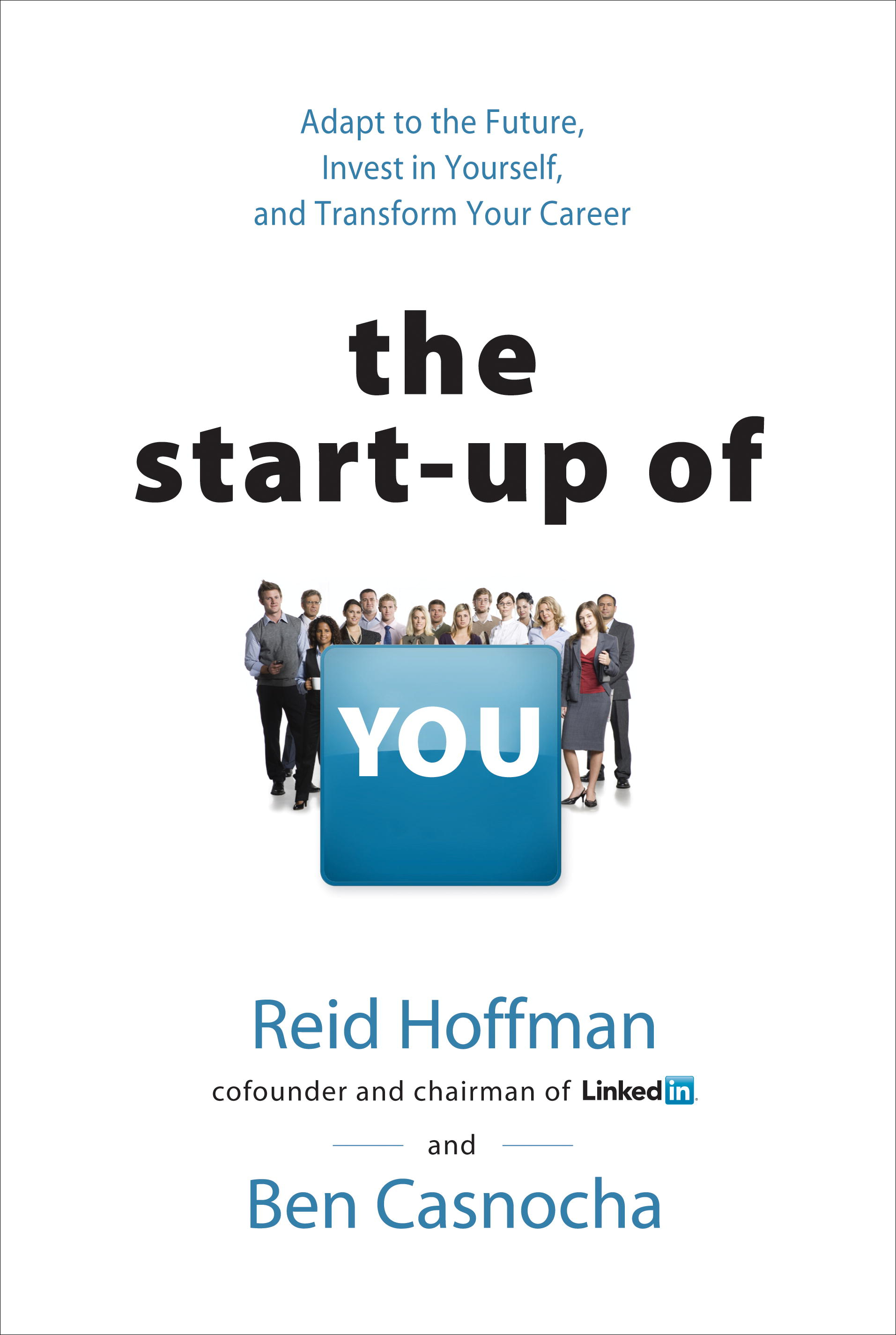The Start-up of You
 I read Reid Hoffman's (LinkedIn's co-founder) new book last week, the Startup of You: Adapt to the Future, Invest in Yourself and Transform Your Career.
I read Reid Hoffman's (LinkedIn's co-founder) new book last week, the Startup of You: Adapt to the Future, Invest in Yourself and Transform Your Career.
The thesis of the book is that everyone (from CEOs down to the lowest level employees) should view themselves as entrepreneurs. It argues that you need to manage your career the same way an entrepreneur would manage a new enterprise.
I agree with this concept completely, and for those that haven't been exposed to this thesis, it's worth the read. If you're already familiar with this career approach, you won't find much value in the book. It describes the concept effectively, gives several practical tips and action items to help get you there but largely it comes off as a long advertisement for LinkedIn.
That said, there were a few valuable insights that I took from the book. Here are two:
The first is about managing your network and asking for help/favors. When you ask someone for something like advice or an introduction, try hard to give that person something first: a link to an article they might be interested in, an insight you picked up that might help their business, a connection or recommendation that might help them do their job better. Also, give them some thoughtful and insightful context on what you need. Once you've done this, then ask for the favor. Give them a "gift" before you ask them for help. This is a neat approach to managing your network.
The second is about risk. The book cites a Neurophysicist that explains that to keep our ancestors alive, Mother Nature evolved a brain that routinely tricked them into making three mistakes: overestimating threats, underestimating opportunities, and underestimating resources (for dealing with threats and fulfilling opportunities). This caused our ancestors to be very good at avoiding dangerous tribes or animals that could kill them in favor of seeking out opportunities for more food or shelter or resources. While this was a practical approach at the time (they had to avoid death), this instinct is far less applicable to the world we live in today; a bad investment or a poor career decision isn't going to kill us. The book encourages the reader to keep this instinct in mind when navigating your career and to try to resist it. You're likely vastly overestimating the risk and potential pain that could come from most career decisions.
In short, the book is a fairly engaging and quick read and the message is spot on. If this is new concept for you, I'd definitely recommend picking up a copy.